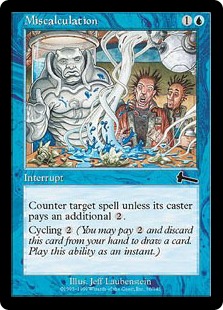Are you a Quiet Speculation member?
If not, now is a perfect time to join up! Our powerful tools, breaking-news analysis, and exclusive Discord channel will make sure you stay up to date and ahead of the curve.
An interesting question was brought up on Reddit today: Do you point out to your opponent when they misplay?
It's a question with a lot of different and equally-correct answers. For instance, in playtesting you should almost always discuss misplays as you see them happen. After all, what's the point of playtesting if you can't get the right set of information from the results?
As for friends? I almost always point things out after the match, because most of them appreciate and look for it, as I do after my own matches.
Things get tricky when it comes to your opponents. Some people like myself want to hear where I screwed up, regardless of where or who that information is coming from. But after emotional matches it can be tricky for some people. I think one of the best ways to do it is to ask them their line of thinking behind a given play. Their response should make it pretty clear as to whether or not they would appreciate your input, and this comes across a lot better than just telling someone how you think they did something wrong.
At least, that's my paradigm on the subject. What do you think?





Totally depends on the feeling I get after the game while scooping up cards and desideboarding.
Some people are chatty and totally open to the “So when this happened…” line of questioning, which I agree is a great way to start that conversation.
I feel the “Oh, you totally could have had me if you didn’t do…” just comes across as #sickbrags and should be avoided.
Sadly, MTG players aren’t typically known for self-awareness and social skills.
Agree with you on all points.
Context is key and it can be challenging to avoid coming off as smug or condescending, but to simplify: improving the skill level at your LGS is good for both them and for you in the long-term, and if they’re too immature to accept constrictive advice at face value then congrats, you have successfully tilted a jackass.
Most of the time, yeah, but there’s also the people who are there “just to have fun” and don’t want to hear about how they could’ve sequenced their plays better.
I very seldom point out misplays, unless we’re friends and I know they don’t mind. Even then I don’t always do it, even during playtesting, unless the best play is obvious (e.g. I have a Caryatid, they have a pair of Burning-Tree and didn’t attack). Magic is complex enough and has a lot of hidden information that oftentimes you can’t really say for sure which line of play is the best, especially since you see all your cards but they didn’t. Other times you may be right but they don’t have enough experience to see why you’re right.
After reading the article of Carrie yesterday i saw this title, opened the article, started reading….
well it feels like this was only an introduction to an article. Is it the deadline of having to offer new articles every few days, or is it because it’s not-insider (i have no idea, usually i only read insider articles), but it feels like you stopped writing before you begun. This is more like a forum entry.
I expected some examples from real life and your thoughts on them, and then you could ask your audience what they would have done.
Or make a distinction between different kinds of errors (rules, tactics, experience).
You’re a good writer for QS, so that’s the reason i was a bit disappointed by this too short article. Keep up the good work !
I point them out after the match. If they learn from it, they’ll play better and your tie breakers get better (hopefully).
I’m a pretty friendly and experienced player so it honestly depends on the REL. If it’s a FNM or release I’ll point out misplays at anytime that’s appropriate to the moment, even sometimes right after they happen (if I sense my opponent would value that advice). I’ve helped people rebuild decks numerous times after I beat them, only to discover they have a much better pool than me.
In competitive REL I see no reason to point out misplays, only illegal ones.
If your only goal is winning the tournament, never point out a misplay to an opponent if it’ going to help them play better through the rest of the match. With the same logic, always tell them afterwards because it helps your tiebreakers!
If your goal is winning the tournament, never point out a misplay to an opponent if it’ going to help them play better through the rest of the match. With the same logic, always tell them afterwards because it helps your tiebreakers!